Navigating Cary: A Comprehensive Guide to Cary Zip Code Maps
Related Articles: Navigating Cary: A Comprehensive Guide to Cary Zip Code Maps
Introduction
In this auspicious occasion, we are delighted to delve into the intriguing topic related to Navigating Cary: A Comprehensive Guide to Cary Zip Code Maps. Let’s weave interesting information and offer fresh perspectives to the readers.
Table of Content
- 1 Related Articles: Navigating Cary: A Comprehensive Guide to Cary Zip Code Maps
- 2 Introduction
- 3 Navigating Cary: A Comprehensive Guide to Cary Zip Code Maps
- 3.1 Understanding Cary Zip Code Maps: A Foundation for Navigation
- 3.2 Exploring the Cary Zip Code Landscape: A Detailed Overview
- 3.3 Benefits of Using Cary Zip Code Maps: A Comprehensive Analysis
- 3.4 FAQs about Cary Zip Code Maps: Addressing Common Queries
- 3.5 Tips for Using Cary Zip Code Maps Effectively: Maximizing Utility
- 3.6 Conclusion: The Importance of Cary Zip Code Maps in a Modern Context
- 4 Closure
Navigating Cary: A Comprehensive Guide to Cary Zip Code Maps

Cary, North Carolina, a thriving town known for its vibrant community, robust economy, and family-friendly atmosphere, is a popular destination for residents and visitors alike. Understanding the intricate network of zip codes within Cary is crucial for a variety of reasons, from navigating local services to optimizing online searches. This comprehensive guide delves into the significance of Cary zip code maps, exploring their benefits and providing practical tips for their effective use.
Understanding Cary Zip Code Maps: A Foundation for Navigation
Cary zip code maps serve as visual representations of the town’s postal divisions, illustrating the specific geographic areas associated with each unique five-digit code. These maps are essential tools for:
- Delivering mail and packages: Zip codes are the foundation of the postal system, ensuring accurate and efficient delivery of mail and packages.
- Locating businesses and services: Businesses often list their addresses and zip codes on websites and directories, enabling users to easily identify nearby locations.
- Planning travel and navigation: Zip codes can be used in conjunction with GPS systems and online mapping tools to plan routes and find specific addresses within Cary.
- Understanding local demographics and statistics: Zip code data can be used to analyze population distribution, income levels, and other demographic factors, providing valuable insights for businesses, government agencies, and researchers.
Exploring the Cary Zip Code Landscape: A Detailed Overview
Cary encompasses a variety of neighborhoods, each with its own unique character and zip code. A thorough understanding of these zip codes is essential for navigating the town effectively.
Key Zip Codes in Cary:
- 27511: This zip code covers a large portion of central Cary, encompassing areas like Cary Towne Center, the Cary Arts Center, and the Cary Aquatic Center. It is known for its bustling commercial district and diverse residential neighborhoods.
- 27512: This zip code encompasses the southeastern portion of Cary, including the popular neighborhoods of Prestonwood, Lochmere, and Glenaire. It is known for its upscale homes, parks, and golf courses.
- 27513: This zip code covers the southwestern portion of Cary, including the neighborhoods of Regency Park, Waverly Place, and Cary Park. It is known for its family-friendly atmosphere, excellent schools, and convenient access to major highways.
- 27519: This zip code encompasses the northwestern portion of Cary, including the neighborhoods of Morrisville, Crossroads, and West Cary. It is known for its newer developments, technology companies, and proximity to Research Triangle Park.
Beyond these primary zip codes, Cary also includes several smaller zip codes, each serving specific areas within the town.
Benefits of Using Cary Zip Code Maps: A Comprehensive Analysis
The use of Cary zip code maps offers a multitude of benefits for residents, businesses, and visitors alike:
- Enhanced accuracy and efficiency: Zip codes provide a precise way to identify locations, streamlining processes like mail delivery, package tracking, and business searches.
- Improved communication and collaboration: Sharing zip codes facilitates clear communication and collaboration among individuals, businesses, and organizations within Cary.
- Targeted marketing and advertising: Businesses can leverage zip code data to target their marketing campaigns to specific geographic areas, ensuring their messages reach the right audience.
- Data analysis and research: Zip codes provide valuable data points for analyzing local demographics, market trends, and other factors relevant to business and community development.
FAQs about Cary Zip Code Maps: Addressing Common Queries
Q: Where can I find a Cary zip code map?
A: Cary zip code maps are readily available online through websites like the United States Postal Service (USPS), Google Maps, and various local real estate websites. Additionally, printed maps can be obtained from local libraries, community centers, and real estate offices.
Q: How can I use a Cary zip code map to find a specific address?
A: Locate the desired address on the map and identify the corresponding zip code. You can then use this zip code in conjunction with online mapping tools or GPS systems to navigate to the address.
Q: What is the difference between a Cary zip code and a Cary mailing address?
A: A Cary zip code represents the five-digit postal code assigned to a specific geographic area. A Cary mailing address includes the street address, city, state, and zip code, providing a complete postal address for mail delivery.
Q: How can I use a Cary zip code map to find local businesses and services?
A: Many online directories and search engines allow users to filter results by zip code. By entering the desired zip code, users can identify businesses and services located within that specific area.
Q: Are there any other uses for Cary zip code maps?
A: Yes, Cary zip code maps can be used for a variety of purposes, including:
- Identifying school districts: Schools are typically assigned to specific zip codes, allowing parents to easily identify the schools serving their neighborhood.
- Locating public services: Libraries, fire stations, police stations, and other public services are often organized based on zip codes, making it easier to locate them.
- Planning community events: Zip codes can be used to target specific neighborhoods for community events, ensuring wider participation.
Tips for Using Cary Zip Code Maps Effectively: Maximizing Utility
- Use multiple resources: Consult multiple sources, such as online maps, printed maps, and local directories, to ensure accuracy and completeness.
- Verify information: Always verify zip code information with official sources, such as the USPS website, to avoid errors.
- Consider neighborhood boundaries: Pay attention to the boundaries of different neighborhoods within Cary, as zip codes may not always align perfectly with neighborhood lines.
- Utilize online tools: Explore online mapping tools that allow users to search by zip code, providing detailed information about local businesses, services, and points of interest.
- Stay informed: Keep abreast of any changes or updates to Cary zip codes, as they may occur due to neighborhood growth or other factors.
Conclusion: The Importance of Cary Zip Code Maps in a Modern Context
Cary zip code maps are essential tools for navigating the town, locating businesses and services, and understanding local demographics. By leveraging these maps effectively, residents, businesses, and visitors can enhance their experience in Cary, streamlining communication, facilitating travel, and accessing valuable information. As Cary continues to grow and evolve, understanding the intricate network of zip codes will become increasingly important for ensuring a smooth and efficient experience within the town.
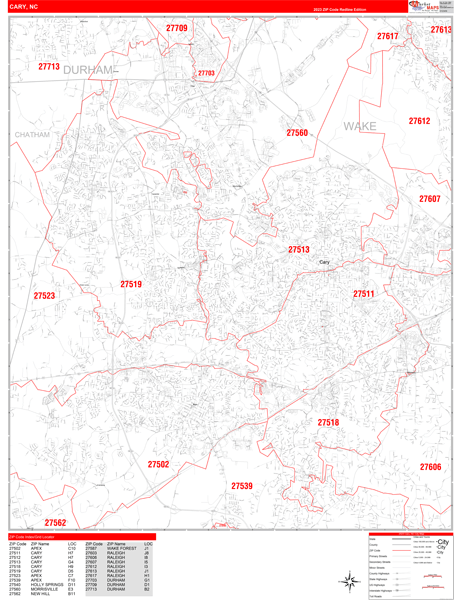


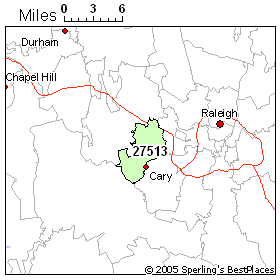
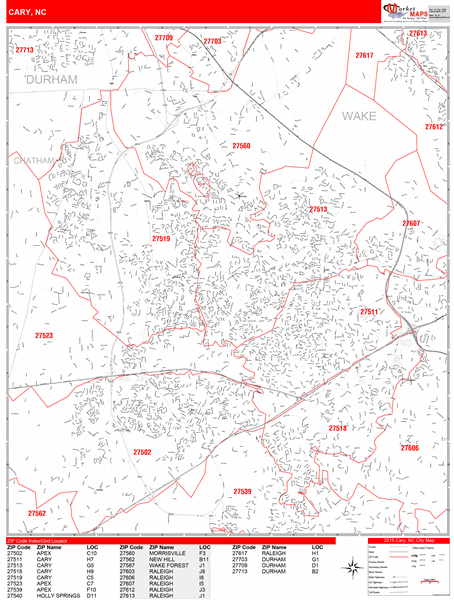

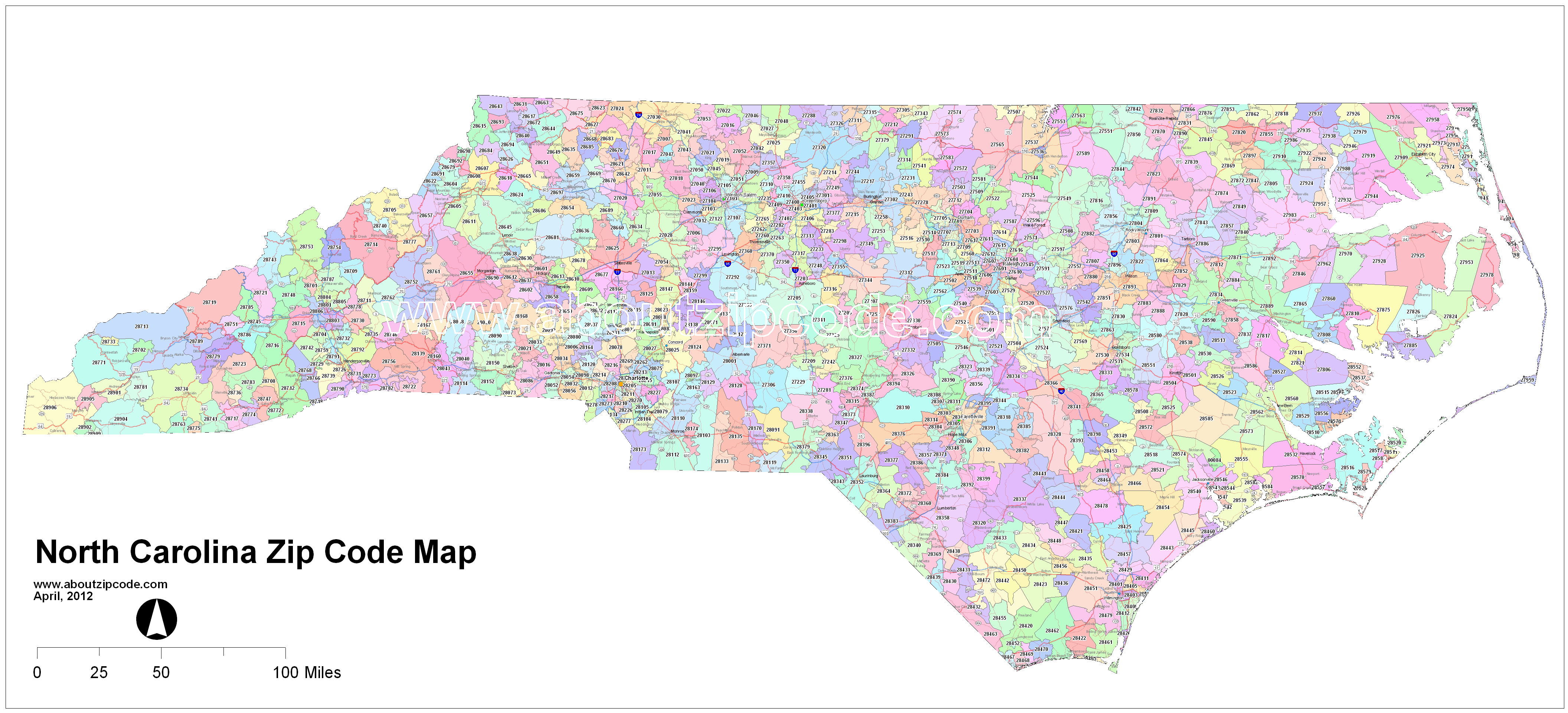
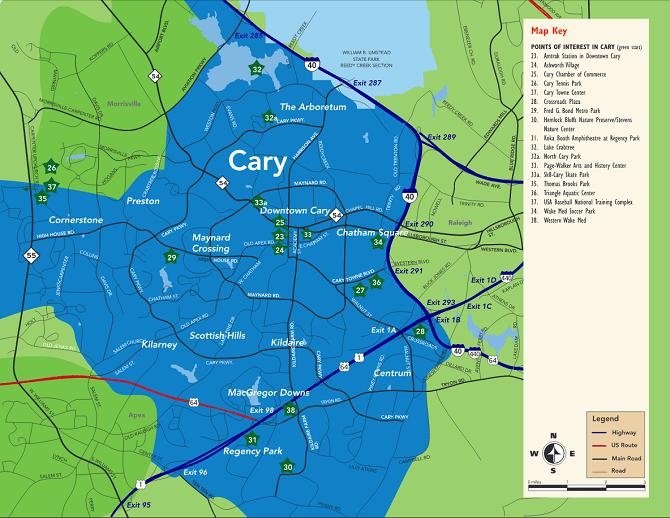
Closure
Thus, we hope this article has provided valuable insights into Navigating Cary: A Comprehensive Guide to Cary Zip Code Maps. We appreciate your attention to our article. See you in our next article!
